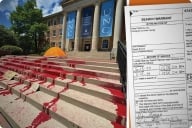You have /5 articles left.
Sign up for a free account or log in.
Being a college or university president today is a complicated and demanding job that is difficult to prepare for. Challenges come from all directions, and it is easy to lose sight of basic concepts that seem obvious.
But one need only follow the higher education press to become aware of patterns that have repeatedly gotten presidents into trouble, particularly early on, and jeopardized their ability to lead. The following is a list of some of those patterns that a new president should work to avoid.
Not Managing the Board: Governing boards are made up of people. No matter how accomplished they are, or what got them to their board positions, all trustees or regents come with the human need to feel important, and the view that their board service is meaningful and appreciated. Presidents must pay close attention to those needs. The challenge always is the balance between inviting board members inside institutional management while keeping them out of day-to-day operations.
The line is never clear. Good board management starts with developing a culture of mutual respect and cooperation, both between the board and the president (and his or her staff) and among individual board members. There must be total honesty and no surprises. The president must set aside time for regular communication with board members outside of the formal board meetings, and consultation with board leadership as issues arise.
Hosting periodic retreats where board members can get to know one another and the president’s staff in a more relaxed setting, and be introduced to more long-range or strategic issues facing the institution, can be useful. Board members must be regularly and publicly acknowledged for their individual contributions. And for some, it may be necessary to find special projects that give them that unique visibility and purpose. High-functioning boards that work well with university leadership are not automatic. Nurturing their development and carefully maintaining their culture is one of the most significant responsibilities of the president.
Not Asking the Hard Questions: Presidents must rely on staff to handle the responsibility of their functions independently. But that does not mean that the president is excused from understanding what his or her staff is doing. The president must be enmeshed enough to sense when further questions are necessary and be willing to probe weaknesses in performance.
The first discipline is to listen carefully, and then to be fearless in asking supportive but piercing questions that quickly get to the heart of the issues. Poorly developed or glib presentations cannot be allowed to slip by. When things don’t make sense, it may be tempting to assume that the experts understand and therefore it must be right. But if the president does not understand, likely others will not either.
Ultimately, the president will be left to answer critics of the institution when things don’t go well, and it will not be sufficient, or seemly, to lay blame on staff because the president did not know. Developing instincts as to what doesn’t sound right or is not fully thought through comes with time, but asking probative questions is a good habit to establish from the start.
Not Separating Personal Finances From University Expenses: Many perks come with being a president, and the job is fully consuming 24 hours every day. Not surprisingly, therefore, presidents from time to time confuse genuine university expenses with their own personal finances. But this is a place where good judgment and strict discipline must be consistently exercised. Even where justifications for expensive perks abound, the optics may be difficult to explain after the fact.
Thoughtful written standards developed in advance can make a difference. Expenditures that appear to (and/or do) benefit the president personally (e.g., office and home remodeling, university car, drivers) must be closely scrutinized and documented. Luxury behaviors (e.g., first-class travel, travel in private jets, use of town cars, spousal benefits) should be carefully monitored and reviewed, preferably by someone other than, or in addition to, the president.
The best test is always, how will it read on the front page of the local newspaper? University constituents, especially at public institutions, expect their presidents to be humble stewards of the public good and not to behave like corporate CEOs. Presidents need always to remember this.
Not Managing Direct Reports: Personnel management is one of the hardest aspects of any leadership position. Presidents want and need to have their subordinates run good operations. Presidents therefore must also be good managers and role models with their own direct reports, including personal staff. There can be no favorites.
Compensation must be fairly determined. Genuine and meaningful written performance evaluations must be done annually. Difficult issues must be dealt with directly, and not stuffed under the rug or transferred to another unit. Presidents must be willing to have difficult conversations, where appropriate, and not relegate that responsibility to someone else. Running a good shop within the president’s own line of authority is surprisingly visible throughout the institution and essential to setting the tone for what is expected elsewhere.
Wanting to be liked too much: Presidents must make hard decisions, and by definition they will not please everyone. It is important for presidents to get comfortable with that reality and be able to make those decisions. It is useful to give a rationale for controversial decisions so the disaffected can understand the president’s thinking. It may be helpful to keep the dialogue going by giving dissenters a role to play in the execution of the initiative they opposed. But an explanation, no matter how fulsome, is not going to bring everyone around, or cause those who disagree to refrain from vociferous and often public criticism after the decision has been made.
Respect is more important than popularity in a leadership position. The president must choose a course after thoughtful consideration and be thick-skinned enough to stick with it notwithstanding criticism.
Thinking It Can Be Done Alone: Being the president is a lonely job. Notwithstanding peer governance, no one truly shares responsibilities similar to the president’s. And since the president has influence or control over everyone at the campus, it is difficult to find a genuinely neutral audience where it is appropriate to share unvarnished ideas. (The one, and often underused, exception may be the campus attorney, with whom the president can safely brainstorm within a recognized attorney-client privilege.)
But not sharing has a cost of becoming too insular. It is healthy for a president to develop friendships with campus presidents at other institutions, leaders in different organizations, and other peers outside of his or her own campus, so s/he can have a place to let down his or her hair and seek input and advice. It’s too big a job to be done all alone. It is well worth the time and effort to cultivate friendships outside the institution.








